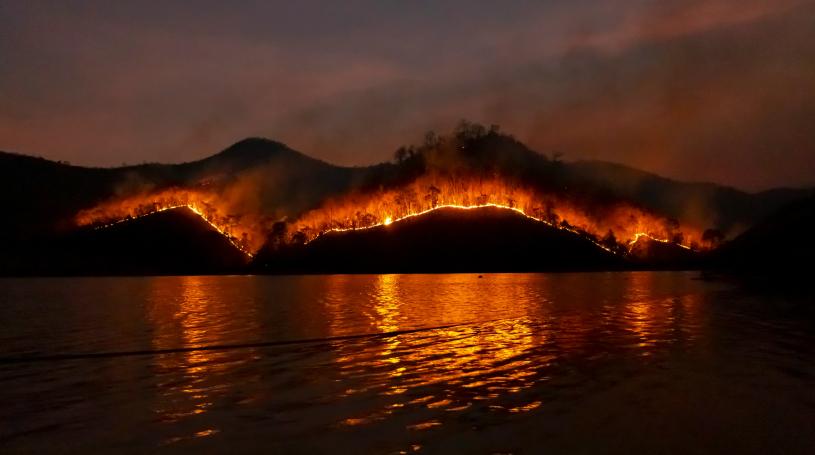It was never going to be a slow start to the new year
It was never going to be a slow start to the new year.
War in the Ukraine, war in the Middle East, and the ominous closure of ArcelorMittal's long-steel operations and associated job losses.
Fasten your seatbelts for 2025!
But if any one event focuses the mind on our collective future it is the catastrophic inferno in Los Angeles, a stark reminder that the world is already deeply mired in a climate emergency. Some of our other perennial problems, such as clean water and government inefficiency, may soon pale in comparison with environmental impacts yet to come, including here in South Africa.
A recent Oxfam report highlights another global emergency that should hold our attention this year: inequality. In the first ten days of this year the richest one percent of the world's population already used up their recommended annual quota of carbon. In other words the richest people on the planet have a carbon footprint of about 76 tonnes a year, compared with the calculated ‘fair share’ of 2,1 tonnes a year necessary to prevent the planet surpassing a 1.5°C temperature increase – the estimated tipping point beyond which life on earth starts resembling a Hollywood apocalypse
Put different, the top one percent are responsible for 15,9 percent of global CO2 emissions, while the bottom 50% produce less than half of that – just 7,7%.
The excess of a few is putting the entire system at risk.
But whereas previously this massive imbalance if often dismissed as a fact of life, there is a growing realisation that business as usual is simply unsustainable – and has been for quite some time.
This is true for carbon emissions as it is for society at large; it is also true for the South African economy. Without inclusive and sustainable economic growth our best laid plans are just window-dressing for a deteriorating balance sheet. The level of frustration felt by the unemployed under-employed, by those locked out of the system due to a dearth of opportunity, compounds the crisis of a planet running out of time to correct systemic balances.
The climate crisis is symptomatic of a human challenge to chart a sustainable and more equitable future.
To win this battle entails a collective effort involving all sectors of society. We need to make better use of our resources.
It's too late to build a reservoir when your house is already on fire.
As we start a new year the Cape Chamber recommits itself to unlocking opportunities as we help build an inclusive sustainable economy. Let us make the most of public-private partnership to drive positive change while we still have the chance to do so.
John Lawson
CEO of the Cape Chamber of Commerce and Industry

